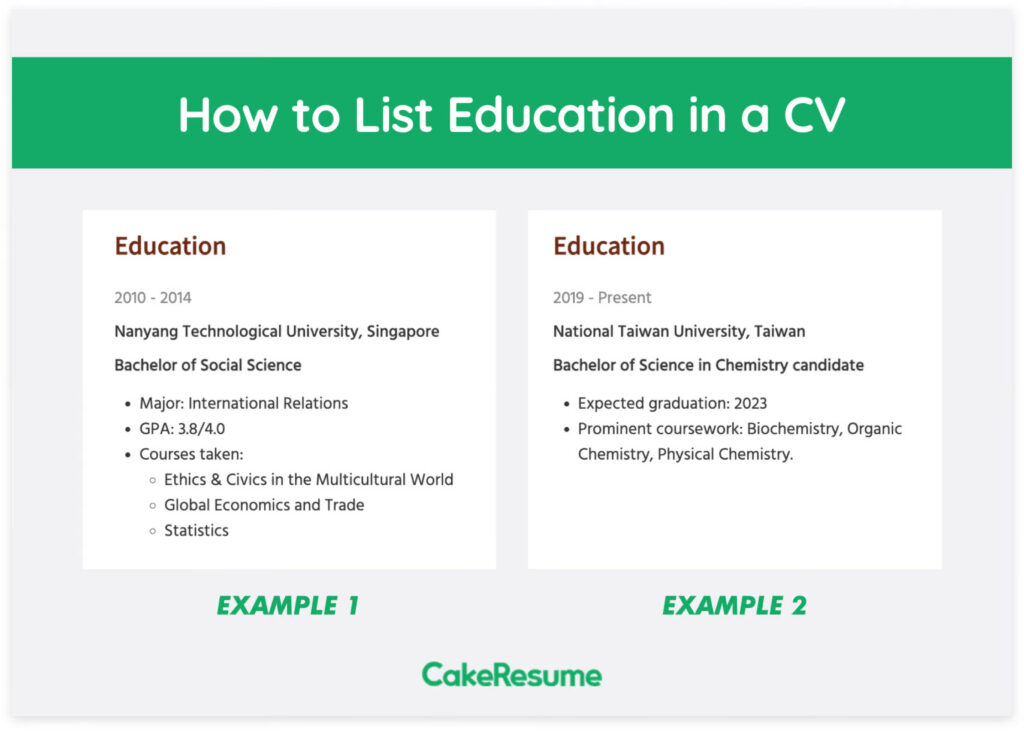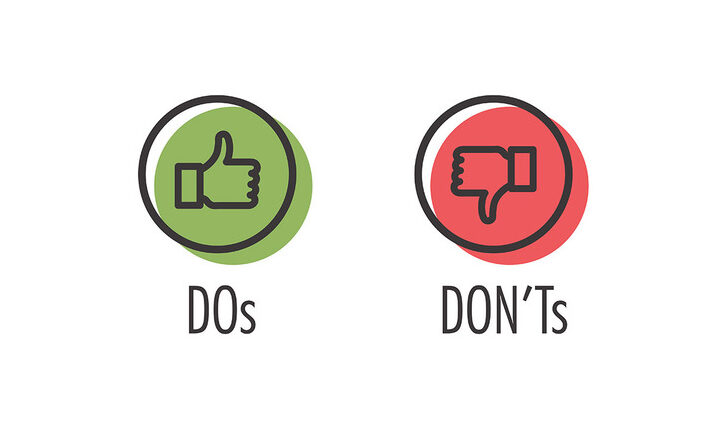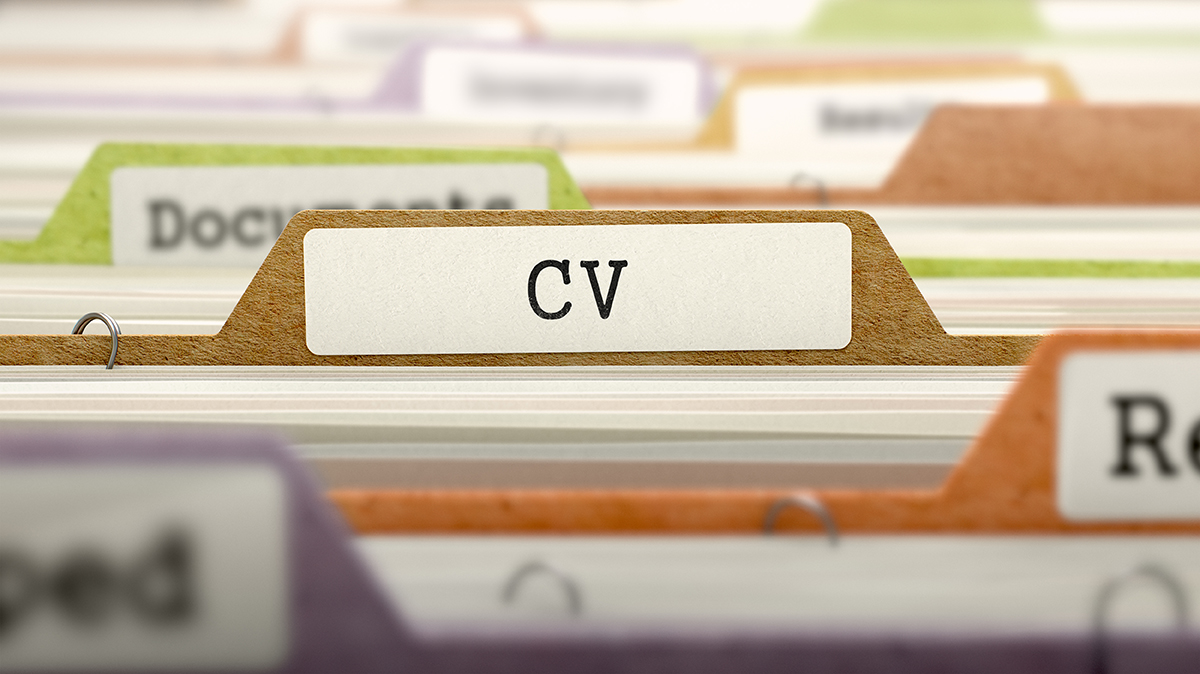Struggling with how to write a CV that gets you a well-paid job abroad? Look no further. This guide offers straightforward steps on how to write a CV tailored for the 2025 job market, highlighting your qualifications without any needless complexity.
Get ready to present yourself confidently to potential employers with a polished, professional CV.
Key Takeaways
- Learning how to write a CV is essential, especially for foreign candidates. It is a comprehensive document detailing your work and academic history, tailored to the job application to showcase how your skills and experience align with job requirements.
- Choosing the right CV format and layout is one of the main steps when deciding how to write a CV. Options include skills-based or work-based CVs, while the presentation should be professional, error-free, and contain clear and relevant information for the position.
- Supplementing a CV with a well-written cover letter, optimising for ATS by aligning skills with job descriptions, and avoiding common mistakes can significantly improve job search success in a competitive blue-collar job market.
Understanding the Essentials of Writing a CV
A CV, or curriculum vitae, acts as a versatile tool in your job-hunting arsenal. It shows your work and academic history, showcasing industry-relevant qualifications and professional experiences. While there’s no one-size-fits-all CV template, tailor the structure of your CV to match your career level and the specific job application.
If you’re looking for a job abroad in the blue-collar industry, highlight your relevant skills and experiences on your CV. Learning how to write a CV can help you catch the attention of hiring managers and secure that all-important job interview.
Define a CV and Its Role in Finding a Job Abroad
A CV is more than just a list of job titles and educational milestones. Your CV becomes a narrative of your professional journey, showcasing your skills, achievements, and potential.
When you apply to a job posting for a work abroad opportunity, knowing how to make a great CV can help you stand out among the competition. It gives employers insight into your previous work experience, your education, and your personality, helping them decide if you’re the right fit for the role and the company.
Seize your chance to make a strong first impression with your CV. A well-crafted CV will get you shortlisted and pave the way for a successful job interview.
1. Find the Perfect CV Layout
Use a well-organised layout to greatly boost the readability and appeal of your CV. Include the following sections:
- Name and contact details
- Introductory profile
- Work experience in reverse chronological order
- Education and qualifications
- Optional: Hobbies and interests
Keep in mind that consistency is key. Here are some tips on how to create a CV that looks professional and is easy to read:
- Use a clean, simple font
- Stick to a black-and-white colour scheme
- Avoid using images and heavy graphic elements
- Employ short sentences and bullet points
- Use bold headings to separate different sections and improve navigability
Keep your CV to around 2 pages, ensuring the entire document is read. By creating an easy-to-navigate CV, you empower recruiters to quickly spot your key qualifications and experiences.
2. Choose the Best CV Format
Choose the format of your CV carefully, as it can have a significant impact on its effectiveness. Depending on your goals, background, and past experiences, consider the different CV formats. Each format will present your information differently, emphasising different aspects of your professional profile.
Whether you choose a chronological, functional, or combined format, the key is to select the one that best highlights your strengths and aligns with the job requirements.
List Jobs in Reverse Chronological Order
In a CV, your work history should be presented in reverse chronological order, with the most recent jobs at the top. This format allows potential employers to see your current or most recent role first, offering them an immediate understanding of your current skill level and job responsibilities.
When detailing your work experience, remember to provide 3 to 5 bullet points summarising your main accomplishments and duties for each role. This will help you showcase your professional skills and expertise effectively.
What’s more to know about how to write a CV?
The Importance of Visual Appeal in CV Design
Your CV’s visual appeal will, to some extent, determine how well it will catch the attention of potential employers. Hiring managers are more likely to read and consider a professional and visually pleasing CV
Whether you choose a formal style with minimal design and dark colours or a creative style with unique layouts and skill bars, the objective is to create a CV that is both visually engaging and professional.
Remember, the key is to strike a balance between visual appeal and readability.
3. Include Personal Details and Contact Information
Begin your CV by including your personal details and contact information. This section should contain:
- Your name
- General location for the address (Country, e.g.)
- Email address
- Mobile phone number
- If available, a LinkedIn profile link
Include your contact information so potential employers or recruiters can easily contact you regarding job opportunities, interviews, or any queries they may have about your CV.
Always triple-check this section to ensure all details are current and accurate.
4. Write an Engaging CV Objective or Summary
An expertly composed CV objective or summary can establish the tone for your entire curriculum vitae. It serves as a brief introduction to your qualifications and relevant skills, potentially convincing a recruiter to continue reading the CV.
Whether you choose to express your professional goals or a CV summary offering an outline of your career background, ensure it is concise, clear, and tailored to the job description carefully.
5. Showcase Professional Qualifications and Work History
The essence of your CV is reflected in its effective portrayal of your professional qualifications and work history. Your work experience should be listed in reverse chronological order, with the most recent jobs at the top.
When listing each position, remember to include bullet points that outline your key achievements and responsibilities. This will help provide a clear summary of your experience in each role.
Document specific job activities and list relevant responsibilities and relevant skills developed during internships. If there are gaps in your career history, be sure to minimise or explain them to avoid being a red flag to potential employers.
6. Tailor Experience to Job Titles
Highlight the most relevant job experiences to make your CV more effective. Prioritise the most relevant job experiences by placing them first on your CV, making immediate connections with the job title you are applying for.
Also, don’t forget to include significant freelance work or side projects in the experience section when they contribute to showcasing your qualifications for the target job title.
7. Highlight Key Achievements
Your key achievements can significantly boost the impact of your CV. When listing your achievements, try to quantify them with figures, percentages, or statistics to provide concrete evidence of your accomplishments. Use the Problem Action Result (PAR) formula to create vivid descriptions of your achievements.
Remember, your achievements should directly relate to the job requirements or highlight your transferable skills.
8. Write Detailed Academic Background

Another integral part of your CV is your educational background. When presenting your educational milestones, ensure you include the following information for each degree or certification:
- Degree type
- Major
- Institution name
- Graduation year
Depending on your level of work experience, you may need to adjust the level of detail in this section.
For instance, if you’re a recent graduate applying for your first job or have minimal work experience, provide a highly detailed CV education section showcasing your academic accomplishments to prospective employers.
If you’re currently studying, include the expected graduation date in your CV’s education section next to the degree information (Bachelor of Arts (BA), Master of Science (MS), Ph.D.) to inform prospective employers of your future availability.
This section should be clear and easy to read, with clear headings and bullet points for easy reading.
9. Demonstrate Your Skillset
Your collection of skills forms a vital part of your curriculum vitae. Include both hard skills (job-specific abilities), and soft skills (nnate character traits) in your CV.
For each skill listed, provide examples of how you’ve used it in a work setting. This allows potential employers to see how you could apply those skills in the role you’re applying for.
Balance Hard and Soft Skills
Balancing hard and soft skills in your CV can give you an edge in the job market. Soft skills (like problem-solving, communication, or teamwork) can complement hard skills like programming languages, software tools, technical knowledge, or logistical skills.
Remember, it’s not just about listing skills but demonstrating how you’ve used them in real-world situations.
Match Skills with Job Descriptions
Align your skills with the job description to significantly optimise your CV. By tailoring your CV to reflect the specific requirements and duties listed in the job description, you demonstrate a tailored fit for the role.
Structuring your CV for ATS can help it breeze through applicant tracking systems and land on a hiring manager’s desk.
With the development of technology, some employers have started to use applicant tracking systems to run through hundreds of CVs and scan for keywords. When you apply for a ‘construction worker’ job ad, they may run the CV through the software, and if they don’t spot keywords such as ‘construction’, ‘worker’, or any other relevant keyword, you’re immediately out.
Make sure you use relevant keywords in your CV in case there are employers who check your employment history with the software.
As we’ve said, you’ll work with our recruiters, who will check your CV manually and even help you upgrade it before we move you forward. Still, this is something to pay attention to as you write.
Software or not, you will attract the recruiter’s attention with the right keywords.
10. Make Your CV Stand Out With Additional Sections
Apart from the standard sections in a CV, consider including optional parts to showcase more facets of your profile. These sections can include:
- Certifications and licences
- Volunteer work and hobbies
- References and recommendations
- Interests
These optional sections can help you tailor your CV further to the job description and make it stand out.
Certifications and licences
Including certifications and licences can greatly enhance your credibility. Include these in a dedicated section, providing the title, the awarding body, and the dates of issuance and expiration for each certification or licence. If space allows, provide a brief description of the related skills.
These qualifications serve as evidence of your continued learning and commitment to your profession, but also as a guarantee for your qualifications.
Volunteer Work and Hobbies
Including volunteer work and hobbies in your CV can highlight your community involvement and demonstrate well-roundedness. List your volunteer experience in the same format as your work experience, including:
- Volunteer title
- Organisation name
- Location
- Date
If your hobbies align with the company’s values and culture, including them can show a good fit with the organisation.
References and Recommendations
Another way to write an exceptionally good CV is to include references and recommendations. Many people forget this step, but it can be a game-changer.
Writing a concise and well-formatted CV is important, but the content matters as well. Having strong references can significantly improve your job search success.
Therefore, if you have the contact number of your previous employer or company, make sure you contact them and get a letter of recommendation. You can attach this to a separate file and link to it in your CV, especially if you have multiple recommendations.
References strengthen your profile and add credibility to your CV. They allow employers to verify your information and get a sense of your work ethic and skills from previous employers.
Even if they choose not to contact anyone, your credibility is off the charts with such recommendations in your CV. It will be hard for prospective employers to pick someone else over you.
Share Interests if You Don’t Have Experience
If you’re a recent graduate or transitioning into a new career field and don’t have much relevant work experience, don’t worry. You can leverage your interests and hobbies to showcase your professional affiliations and make your student CV or first CV more appealing.
Choose interests that highlight the skills relevant to the job posting you’re applying for.
Instead of adding bullet points such as:
- Reading
- Riding a bike
- Hiking
You can expand on those and write one or two sentences for each. An example would be, “I love riding a bike and taking each route. I enjoy the sense of freedom and exploration I get from it,” or anything similar.
11. Do I Need to Add My Photo?

Including a photo in your CV is completely your choice. In the Netherlands, for example, it’s not a deciding factor in the hiring process. However, if you choose to include a photo, it should be a professional headshot that presents you in a positive light.
Remember, the goal is to create a compelling and professional CV that will impress potential employers and land you that dream job.
12. Edit and Format Your CV to Perfection
After you’ve filled out your CV, the next step is to refine it. This involves careful editing and formatting to ensure your CV is error-free and professionally presented. From using basic, readable fonts to ensuring adequate white space for readability, every detail matters.
Proofread Is Paramount
Proofreading is a significant step towards refining your CV. This involves checking for grammar and spelling errors, ensuring the consistency of information, and verifying that all contact details are current and accurate. Even a minor error can detract from the professionalism of your CV, so take the time to proofread your CV meticulously.
13. Save and Submit Your CV
Saving your CV in the correct file format is essential to maintaining its layout as intended. PDF is the recommended file format when saving a CV, as it maintains the layout and formatting across different computers and software.
Also, placing your name at the beginning of your CV file name makes it easier for hiring managers to remember you, as they often sort through many CVs.
Write a Complementary Cover Letter
A cover letter can strengthen your CV and establish a powerful initial impression. It provides additional insights into your interest in the job and presents the person behind the qualifications.
The content of a cover letter should be clear, tailored to the job, express enthusiasm, and detail why you’re the best fit for the role Including a cover letter significantly improves the chances of your CV being noticed, as many recruiters prefer not to review a CV if it lacks a cover letter.
How do I write a CV: Example
Here’s an example of how to make a strong CV:
Personal Information:
| John Doe
Anytown, Anycountry Phone: (123) 456-7890 Email: johndoe@example.com |
Personal Statement:
| With a proven track record of increasing warehouse efficiency and maintaining flawless inventory accuracy, I am confident in my ability to excel as a warehouse worker and consistently contribute to streamlined operations. I am excited to take on the challenges of this role because of my commitment to safety and ability to work effectively in groups. |
Work Experience:
| Construction Worker
Company Name: 2015-present
Driver Company name: 2014-2015 Construction Worker Company Name: 2012-2014
|
Educational Background and Training:
| Certificate in Production Technology
Anytown Community College, Anytown, Lithuania High School Diploma: Anytown High School, Anytown, Lithuania Forklift Operation Certification Anytown Occupational Safety Training Centre, Anytown, Lithuania Additional Workshops and Seminars:
|
Skills and languages:
|
Ready to take your job search in the Netherlands to the next level? Get a free CV template designed for Dutch vacancies.
Other Important Things You Should Know Regarding CV
If you don’t have a lot of work experience, it is ok to feel overwhelmed or confused about how to make a CV for your first job. The following paragraphs will help you understand how to craft a great CV, even if you don’t have a lot of work experience.
Make your CV your first impression powerhouse, unlock job interviews, and land your dream role with ease!
CV vs. Resume: What’s the Difference?
While a CV and a resume might seem interchangeable, they serve different purposes. A well-crafted resume condenses your skills, work history, and education into a one- to two-page snapshot.
On the other hand, a CV, particularly for jobs abroad, is more comprehensive, with no length restrictions, allowing for a more detailed presentation of your qualifications and professional experience.
Usage preferences for CVs and resumes vary across different countries, impacting global job application processes. So, whether you submit a CV or a resume depends on the standard practices of the country in which you’re applying for a job.
For instance, when applying for a job in the Netherlands with Robin, you’re provided guidelines on how to write a CV for maximum success with Dutch employers. We’ve dedicated a special section just to that at the end of this guide.
Skills-Based vs. Work-Based CV
There are several ways to write a CV, but let’s analyse the skills-based and work-based approaches. Both types list work history and skills, but how the information is presented is different.
Skills-Based CV
A skills-based CV, or functional CV, focuses on the person’s skills first and not their work experience. However, the work experience isn’t omitted. With the skills-based CV, you open with a personal statement and then present the key skills. Under each skill, you provide examples of how you gained it and how you put it into practice.
You can use this type of CV; check out which skills you can add and explain how and where you gained them. This isn’t a common CV, which can be beneficial and separate you from others.
A personal statement is something you will not find in work-based CVs, so we want to give an example of one. It is usually a brief overview of who you are, what you are looking for, and why you are a great candidate for the role. Think of your personal statement as a part of a cover letter where you introduce yourself and explain why you are good for the role.
Personal Statement Example
With a solid history of optimising warehouse efficiency and maintaining impeccable inventory accuracy, I’m confident in my ability to excel as a warehouse worker and consistently contribute to streamlined operations. Thanks to my dedication to safety and my knack for effective teamwork, I’m eager to embrace the challenges of this role.
Having honed my skills in warehouse operations, I take pride in my ability to foster a positive working environment and swiftly address any logistical issues that may arise. By combining my warehouse expertise with my commitment to teamwork, I believe I can make a valuable contribution to your warehouse team’s success and ensure the smooth flow of goods for your organisation.
You can use this CV when you lack experience, change careers, or apply for a job abroad for the first time.
Work-Based CV
A work-based CV, or a chronological CV, is what we talk about throughout this article. It focuses on your previous work experience, which is the main focus of the CV. Also, when you write this CV, work is one of the first things an employer sees.
Whether you write this CV or any other type, find a CV example to look at and see how sections are organised. You can follow this guide as well, and you can also check out CV templates that you can use free of charge.
Robin Recruiters Share 10 Biggest Mistakes Candidates Make When They Write CVs + How to Fix Them

A big part of CV writing is knowing what to leave out and what to add. Your curriculum vitae is an overview of your work experience and your skills. Also, you add interest for the prospective employer to get to know you better, but anything other than that is irrelevant.
Our Robin recruiters receive CVs every day, and they often need to ask candidates to make corrections. Here’s what they noted as the biggest mistakes that occur often:
- Contact details aren’t updated. The phone number or email address is outdated and no longer in use. This makes it hard for recruiters to reach you if they have more offers or when you get a job.
- Unprofessional images. We’ve seen people add images where they have sunglasses on or the picture is taken from afar. Check what a CV image needs to look like.
- Gaps between jobs. If you have gaps between jobs, it is beneficial to explain them in your CV or cover letter.
- Your CV is not updated. You need to keep your CV fresh. Our recruiters received a CV that featured the last job from two years ago.
- Order of jobs. Your current or last job needs to be listed first, not the other way around. The oldest jobs are last on the list.
- Too many jobs are listed. For example, one-month jobs could be mentioned, while you can provide more details on relevant jobs.
- Long CV: People who have over 10 years of experience often send long CVs as they add everything they did. Keep the CV 1-2 pages long with short sentences and paragraphs.
- Lack of information about the workplace. Listing only the day and company’s name without your duties doesn’t help employers understand your role in the company.
- Adding marital status: Adding single, divorced, two children, or other information about your family isn’t relevant to getting a job abroad. It is best to leave it out.
- Grammar and spelling errors: Always double-check the details you add and make sure you correct your errors after you write and before you submit a CV.
Don’t worry, these mistakes can be easily avoided with careful proofreading and by following the tips shared in this guide.
Navigating the Job Market with Your New CV
Equipped with your newly created CV, you are set to traverse the 2025 job market. Whether you’re looking for short-term or long-term opportunities abroad, a well-crafted CV can significantly contribute to your job search success.
Job market demands are dynamic, so continuously refining your CV is crucial to keeping pace with these changes and increasing your chances of securing your dream job.
Share Your CV with Robin Recruiters
Now that you know how to make a CV, you can prepare it and apply for the jobs on Robin. We are looking forward to seeing you apply for jobs abroad, and one of our recruiters will help you with the entire process!
Frequently Asked Questions
Why are CVs important when looking for a job abroad?
CVs are important when looking for a job abroad, as they provide employers with a comprehensive overview of your work experience, education, and skills, helping them decide whether you’re a good fit for the position and the company.
What is the format for a CV?
The format for a CV generally includes the following sections: personal details, a personal statement or summary, work experience, education, skills, and, optionally, hobbies and interests. The information should be presented in reverse chronological order, and the CV should be clear, concise, and tailored to the job you are applying for.
Should a photo be included in a CV?
Including a photo on a CV is optional. While it can make the document visually appealing, it is not a decisive factor in the hiring process.
What does a Dutch CV look like?
A Dutch CV typically starts with your personal details, such as your name, address, phone number, and email. Following that are a personal statement or summary and work experience listed in reverse chronological order, education, and skills. Dutch CVs also often include languages spoken and it’s important to keep the layout clean and professional.
How do I start my own CV?
To start your own CV, begin by gathering all necessary information about your work history, education, skills, and any other relevant experiences. Then choose a clear, professional format and start by listing your personal details.
Follow with a personal statement or summary that highlights your career objectives and what you bring to the role. Continue with your work experience, education, and skills, and finish with any additional sections that may apply to you. Read this guide carefully and let us know if you need any help.
How do I write a CV for a job?
To write a good CV for a job, ensure it is tailored to the job description, highlighting relevant experience and skills. Follow the principles from this guide, keep it concise, usually two pages or less, and proofread carefully to avoid any errors.

 English
English  Lietuvių
Lietuvių  Latviešu
Latviešu  Polski
Polski  Português
Português  Română
Română  Slovenčina
Slovenčina  Magyar
Magyar  Русский
Русский  Espanol
Espanol  България
България  Čeština
Čeština  Italy
Italy  Croatia
Croatia  Greek
Greek 

